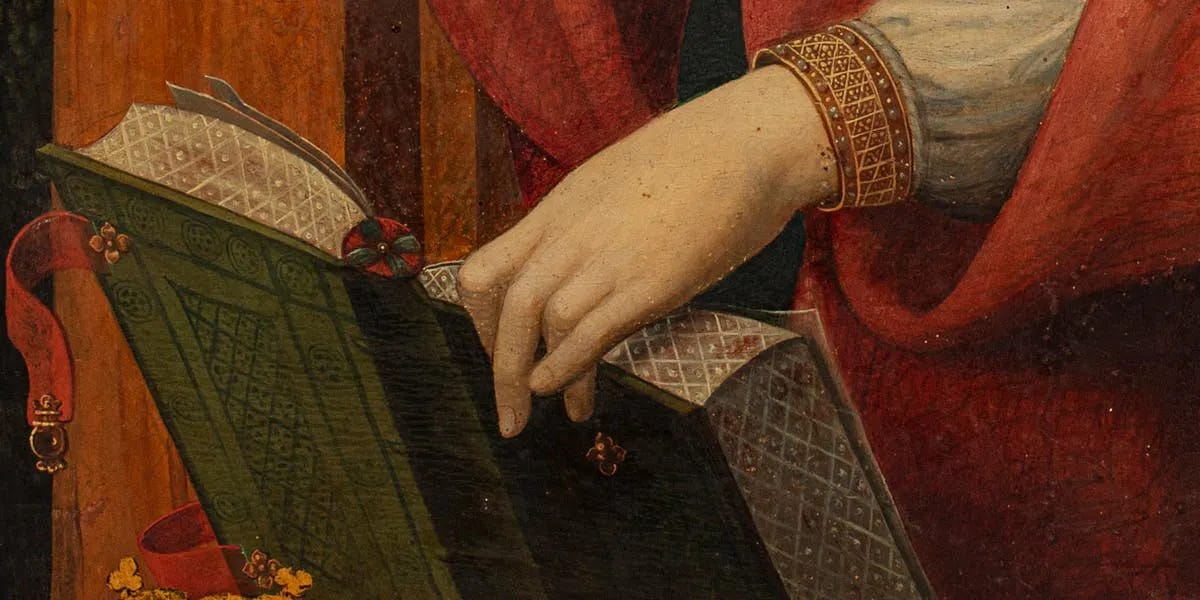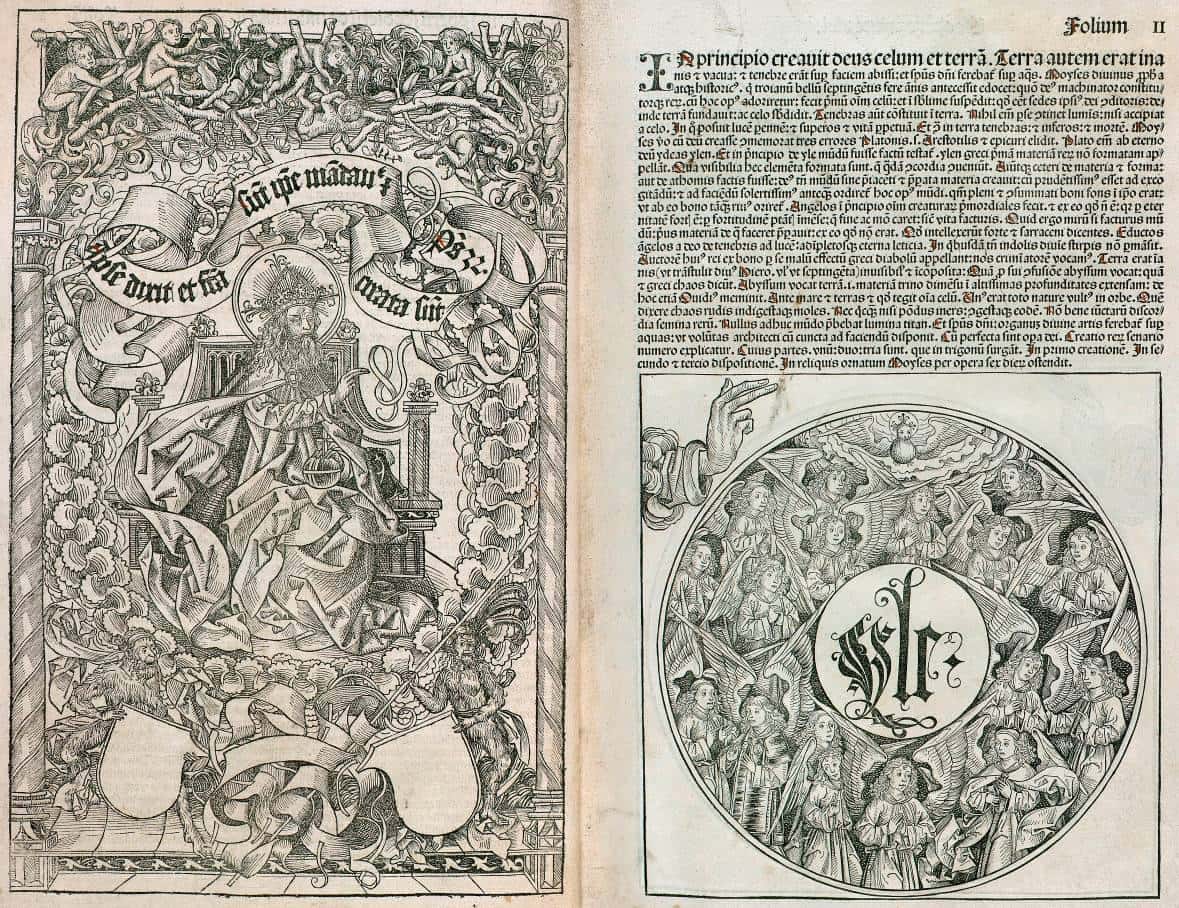About the consumption of books as merchandise, the Renaissance personal libraries and our modern habits of reading
Some thoughts from someone who thinks twice before buying a book
Some time ago I started a digital record of the books I own in my personal library, the main purpose was to know the translations and editions of my books. This is principally because I have a lot of different translations of some: The Iliad, Euripides's plays, Frankenstein... so I need to know what I own. I'm also always exchanging books and more than half of my library comes from this, exchanged, vintage, and secondhand books. I'm telling you all of this just to make a point and is that I realized that I own around 700 books. Depending on your own libraries this number could be enormous or not so surprising. My honest reaction was of surprise, not because of the number itself, but thinking how it is possible to have this not-so-small number of books and still not have some such important pieces of literature such as La Regenta. Do you see where I'm going? But at the same time, I'm absolutely sure of the value of my library, and I'm also sure that the majority of the books I own are indeed either a masterpiece of world literature, or a classic, or possibly will be. A couple of years ago I decided to clean up the titles I had, exchange those that I didn't consider good enough or those that I wasn't going to read again. Therefore, all the books I own are important, great pieces that I still have to read, or books that need, must, be reread throughout life.
Now I ask you all: can you say the same about your collections? I do not want to judge you (or maybe a little) but people usually buy and accumulate books without an honest sense of quality. We can see this, especially in these book-social medias where everyone is always reading specific books and telling you how good they are, so you end up buying a lot of maybe not-so-good titles. And here I finally arrive at the main point of this post: we need to stop buying books as not valuable things. I'm not only speaking of the quality of the text but also about the large amount of money that you maybe waste on books that do not deserve the attention. I know I know, this can sound pretentious, but it is a serious problem. We all buy and read, we study, from a place of privilege.
During Renaissance times personal libraries were object of a more serious treatment. Books were more expensive and access more difficult. Even so, we know of hundreds of personal collections, collections with hundreds and sometimes thousands of titles. These personal libraries can be taken as a testimony not only of the reading habits of people, women and men of those times, but most importantly, as a testimony of the cultural, literary, and social history. The born of personal libraries in these times is deeply attached to the bibliophile person, their urge to collect books not only because of the content but also because of their rarity and beauty. With this another interesting phenomenon starts, the value people give to these collections as a fundamental part of the identity of the owner. Humanists started big, sometimes huge collections of books intending to preserve the art and beauty but also to cultivate mind and soul.
Book collections represented an emotional part as well, connected to the people who owned and inherited them. Testimony of this are the book inheritances, with very specific lists during the Renaissance and the 17th century. An example from 1649 is Elizabeth Isham's “A note of my mothers Bookes in the Chest”:
Her mother had died twenty-four years earlier, her sister thirteen years. By the time she made these lists, Elizabeth Isham had also collected her own library of over one hundred books, a substantial one for England in the period, especially for a female owner.2 After so many years, it would seem natural for Isham to have incorporated her mother’s and sister’s books into her own growing library. But the wording of these notes suggests that Isham thought it important to maintain the integrity of these collections: to her, these remained “my mothers Bookes” and “my Sister’s Bookes” long after the deaths of their owners.
Of course these personal collections were different form those we have, religious books were a key part of them, but something relevant was always the quality and the cultural and academic significance that these books represented. A great number of these collections have some names in common: Homer, Virgil, Petrarca, Dante, The Bible, Boecio… not to mention incunabula books and the rare and unique editions of those years.
So, returning to our times, why not assume our book collections and reading habits with a more serious way of thinking and start building them, and our personal formation with a more academic perspective? more renaissance?
Here the question of money will arise for many, and it is something that I share as a concern. But please don't be fooled by the number of my books, 80% of them are secondhand and most of those have been exchanged for others that were already at home. Talking about money I'm not in a privileged position, and even if I were, I always try to be very selective and conscious of what books I buy.
The point here is not about how much we spend on books, but in what kind of books we invest that money. This does not mean I never make a mistake, I recently started reading Flights by Olga Tokarczuk, just to realize I was hating this book I bought some time ago… what a disappointing! So this specific book is already in the tote for my next trip to the secondhand bookstore with the hope of exchanging it for something better.
And this is the reason why despite the constant exposure we have to hundreds of new titles, we must be very careful about what we read and buy. In my case, I am happy to know that I own editions of those great titles and authors that I mentioned, that even by twists of fate I have a page of an incunabulum, and that my money, although little, is invested, not wasted.
Reminder: marianaownroom will remain free, but if you want to support my writing and studies you can do it with Buy me a coffee
Private libraries, Books and reading, Books and reading, Book collecting, Private libraries, Private libraries, Library catalogs, 1992.
The Great Libraries: From Antiquity to the Renaissance, 2000.
Las Bibliotecas de los humanistas y el renacimiento, Juan Carlos Galende, 1996.
Historia de las Bibliotecas, Escolar, 1990.







Interesting perspective. But it arises from viewing books as investment. I think the most prevalent view is that books are consumables and they are mainly collected for pleasure.
For my part, I collect books (I have about 4,000 books) which, at a certain point in time, meant something to me, either deep and personal or simply utilitarian.
I like your take on this. Reading has become more popular these days, which is a good thing, but it also comes with its drawbacks. Millions of books are published today, and not all of them are worthy of being a classic.
Social media fads like BookTok (not that I have TikTok but I've heard of this trend) and bookstagram have popularised reading but they emphasise certain authors and genres. And whilst I am glad that more people are reading, I wonder- is what they read worth it? Just because something is popular doesn't mean it is of high literary quality.